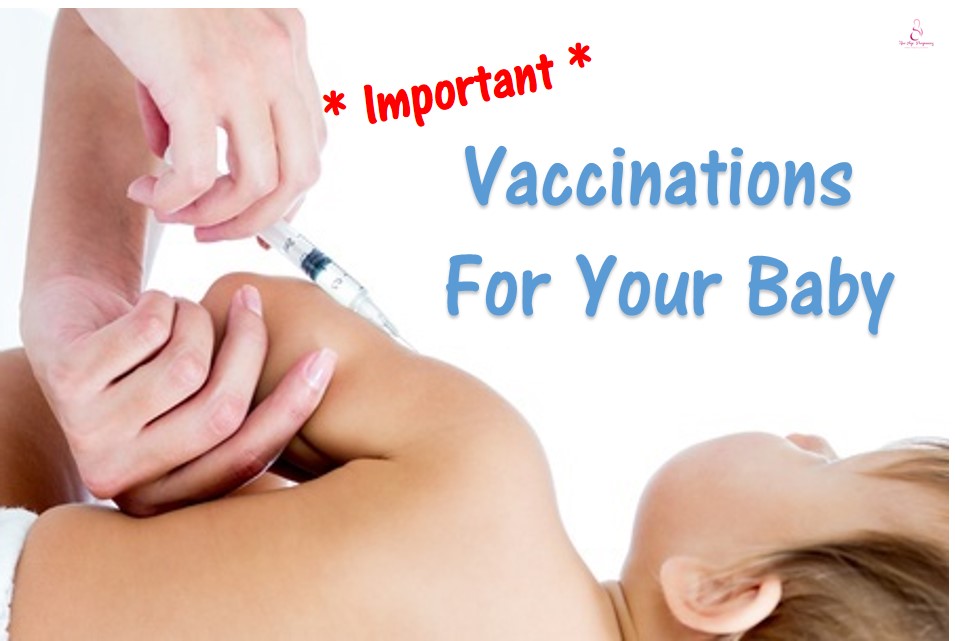
Vaccination is one area where it seems to be more complicated for today’s parents. It is no longer as simple as the doctor schedules it, the parent brings the child for it. With access to information over the web and more optional vaccinations, parents actually find themselves having to research and ask questions to make an informed decision for their baby. Yet this is an important one, as vaccinations are effective for early prevention during a certain window of development and particularly when the child needs the protection most. Parents should still check with your doctor if you have missed the scheduled vaccination as it is possible to catch up on the vaccination shot.
How Does Vaccination Work?
Before getting into the details of what to vaccinate and when, it is good to get an understanding of how vaccination work. Vaccination is the introduction of a weakened strain of the virus, allowing the body’s immune system to produce antibodies against it. Should the child later comes into contact with the disease, the antibodies will fight the disease and provide immunity against it. Many of these diseases have severe complications, even paralysis and death. Although it may seem that diseases prevented are not common in Singapore, for instance polio, it is via the introduction of these vaccination to a sufficiently large population of children that has lowered the risk of spreading the disease.
So Many Vaccinations, but Not So Many Jabs!
For parents who worry about your child getting many jabs, there are combined vaccinations in a single shot. For instance, there is the 5-in-1 which refers to vaccinations against DTaP, HiB and Polio. This is welcomed by parents particularly as certain vaccinations are multi-dosage that requires several vaccinations at different ages for the child. For those interested in getting the vaccination at polyclinics, do find out which vaccination can be subsidized as certain combination vaccine is not subsidized.
Parents also needed not be concerned with the infant having to take so many vaccines at the same time as the baby’s body is capable of taking on immunologic challenges, after all it’s a major part of what the body does after exiting the womb. It has been estimated that healthy infants can theoretically take up to 100,000 vaccines!
The Vaccination List
Below are the vaccinations that have been included in Singapore’s National Childhood Immunisation Programme (NCIP).
1. BCG – stands for Bacillus Calmette-Guerin, and this is given at birth (one dosage) for protection against tuberculosis.
2. Hep B – stands for Hepatitis B, given in three doses at birth, 1-month and 5 to 6-month.
3. DTaP – stands for Diphtheria, Tetanus and Pertussis. DTaP is administered at 3, 4 and 5 month, two booster doses at 18-month and another at 10 to 11 years of age. Diphtheria is a bacterial infection, whose impact on the child can be as severe as paralysis and heart failure. Pertussia (also known as whooping cough) is a caused by a very contagious bacteria Bordetella pertussis that can lead to persistent coughing that makes food and liquid consumption, even breathing, difficult. Tetanus, also known as lockjaw, is caused by Clostridium tetani bacteria which upon entry into an open wound can cause severe muscle cramp.
4. Polio – Poliomyelitis affects young children, via contact with stools and lead to paralysis. The schedule for polio vaccine is same as that for DTaP, thus usually part of a combination vaccination. For polio, there are booster doses given at (i) 6-7 years and (ii) 10-11 years.
5. HiB – stands for Haemophilus Influenza type B, also with the same immunization schedule as DTaP and Polio, thus part of the combination vaccination. However, only one booster is required at 18-month.
6. MMR – stands for vaccination against Measles, Mumps and Rubella. This can be given at 12 month, and again at 15-18 month. MMR used to be a highly contagious disease and doctor’s advice has to be sought before vaccination should there be a member of the household who is pregnant.
7. PCV – stands for the pneumococcal conjugate vaccine against various strains of the pneumococcal bacteria, and comes in 3 dosage at 3 month, 5 month and 12 month. This is to prevent complications from the bacteria, such as pneumonia, ear infection, sinus infection, meningitis and bacteremia.
Below is the list of vaccinations which are optional:
1. Rotavirus – this is a common cause of acute gastroenteritis in infants and children, and given in 2 dosage at 2-month and 4-month.
2. Chicken Pox – this is the Varicella virus, and a single dose is required for children between 1 to 12 year old. This will cover the risk should chicken pox be contracted as an adult who typically experience more severe symptoms with some requiring hospitalization. Many parents do not opt for this vaccine for their child if they are prepared to care for the child at home for a week and there is no pregnant family member.
3. Influenza – there are many strains of influenza virus thus vaccinations can be done annually. This is usually recommended for elderly, frequent travelers and patients with certain chronic conditions.
4. Hep A – stands for Hepatitis A which causes liver disease. Blood screening can be done prior to vaccination and given in 2 dosage at 15-month and 21-24 month.
Read more on the 7 Childhood Illnesses That You Need To Know About
By Mei






